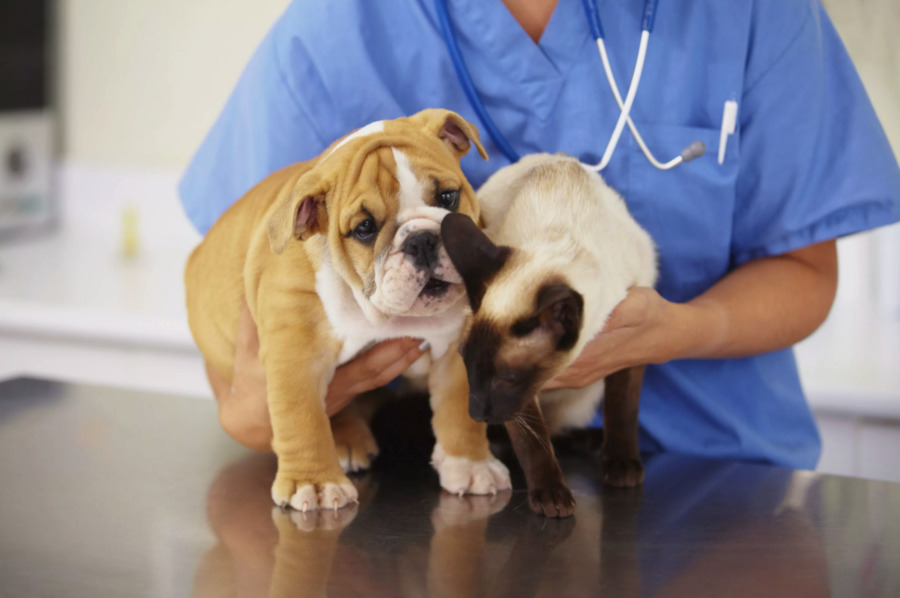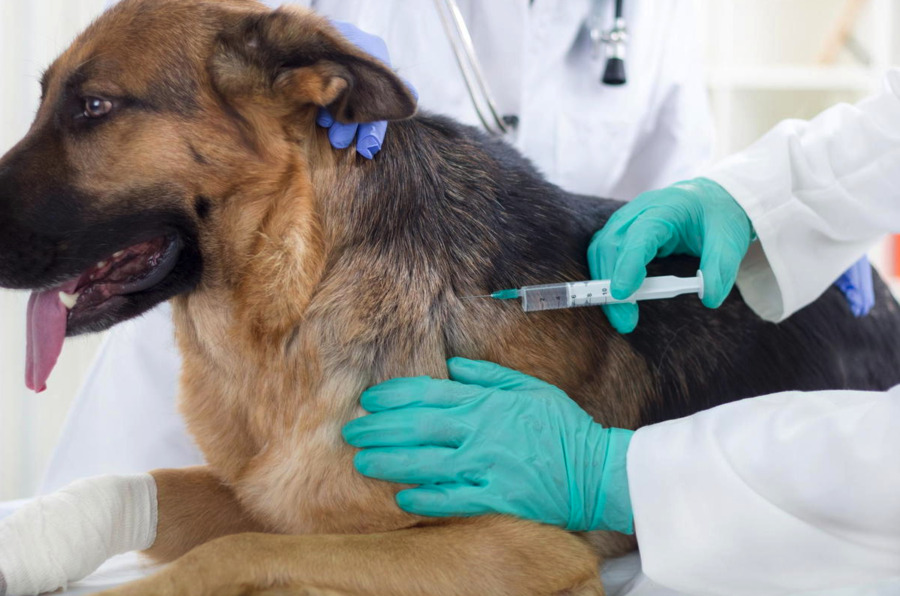What is Vaccination?
Vaccination is a critical preventive health measure that plays a vital role in the proactive management of pet health. It involves administering a vaccine, which contains antigens that mimic disease-causing organisms but do not cause the actual disease. These antigens prepare the immune system to recognize and combat these agents effectively, should the pet be exposed to the actual pathogens in the future. The purpose of vaccination is to prevent illness rather than treat it, making it a cornerstone of preventive veterinary medicine.
Why is Vaccination Necessary?
Vaccinations are fundamental to preventing many infectious diseases that can affect pets, reducing both the incidence and severity of future infections. By preparing a pet’s immune system to fight off potential threats, vaccinations not only protect individual animal health but also help curb the spread of transmissible diseases within the pet population. Furthermore, some pet vaccinations prevent diseases that can be transferred to humans, thereby playing a crucial role in public health. Regular vaccination is therefore essential not only for maintaining the health of pets but also for protecting family members and the community at large from possible zoonotic infections.

History of Vaccination in Veterinary Medicine
– Louis Pasteur (1879): The development of the first animal vaccine by Louis Pasteur against chicken cholera marked a significant milestone in veterinary science. This breakthrough laid the foundation for modern preventive veterinary medicine.
– Edmond Nocar: Following Pasteur, Edmond Nocar made significant strides in the field of vaccine research, particularly focusing on the development and refinement of various vaccine types which greatly advanced the practice of vaccinating animals.
– Marcel Merrier: Merrier was pivotal in extending the application of vaccines beyond traditional models, which included both domestic and wild animal vaccinations, greatly enhancing disease management in multiple species.
– Oral Vaccine Development in Switzerland: In a landmark development, Switzerland produced the first oral vaccine using a live attenuated virus for foxes. This innovative approach proved crucial in managing rabies and demonstrated the effectiveness of oral vaccination campaigns in wildlife, subsequently influencing similar strategies in other regions.
The Dangers of Diseases in Domestic Animals
Domestic animals are vulnerable to a host of infectious diseases that can lead to severe health complications and often, mortality. Diseases such as Carnivore Plague (Distemper), Parvovirus Enteritis, Adenovirus Infection, Canine Parainfluenza, Calicivirosis, Viral Rhinotracheitis, and Panleukopenia (Feline Distemper) are highly contagious and can spread rapidly among unvaccinated populations. These diseases are particularly dangerous because they can strike with little warning and may not respond well to treatment, making preventive vaccination a key strategy in managing pet health.
Vaccination Protocols for Puppies
Puppies, due to their developing immune systems, are highly susceptible to various infections. To protect them, veterinarians recommend initiating a vaccination schedule when puppies are 8-10 weeks old. This first round of vaccinations typically includes immunizations against major canine diseases such as Carnivore Plague, Parvovirus Enteritis, Adenovirus Infection, Canine Parainfluenza, and Leptospirosis. Approximately 21-28 days following the initial vaccines, a booster is administered to enhance the immune response, along with a rabies vaccination. Annual revaccinations are crucial to maintain ongoing immunity and protect the dog throughout its lifetime.
Vaccination Protocols for Kittens
Similar to puppies, kittens also require early immunization to protect them against common feline diseases. The initial vaccinations for kittens, recommended at 8-10 weeks of age, include protections against Calicivirus, Viral Rhinotracheitis, and Panleukopenia. A booster shot, including a rabies vaccine, is administered about 21-28 days after the initial vaccines to reinforce the initial immunization and extend protection. Like with puppies, annual vaccinations are recommended to maintain the protective effects of the vaccines throughout the life of the cat.

Vet Care and Vaccination at “Veterinary in the City”
At the vet clinic “Vets in the City” located in Dubai, we are dedicated to providing comprehensive vaccination services tailored to meet the specific health needs of your pets. Our facility boasts experienced veterinary specialists who are adept at administering a wide array of vaccines effectively and safely. We understand the critical importance of vaccinations in preventing serious health issues and are committed to supporting pet owners throughout the vaccination process. From selecting the appropriate vaccines to handling post-vaccination care, our team ensures that your pets receive the best possible care.
Conclusion
Regular vaccination is essential for maintaining the health and well-being of your pets. By adhering to a proper vaccination schedule, pet owners can prevent numerous infectious diseases that can affect their pets and sometimes themselves. At ” Vets in the City,” we pride ourselves on providing exceptional veterinary care, reflecting our deep commitment to the health of your pets. We invite all pet owners to visit our clinic to discuss their pet’s vaccination needs with our skilled professionals. Protect your pets and ensure their health and happiness with timely and effective vaccinations at our trusted veterinary clinic.

The pandemic showed us that poverty is a policy choice – we must do better


